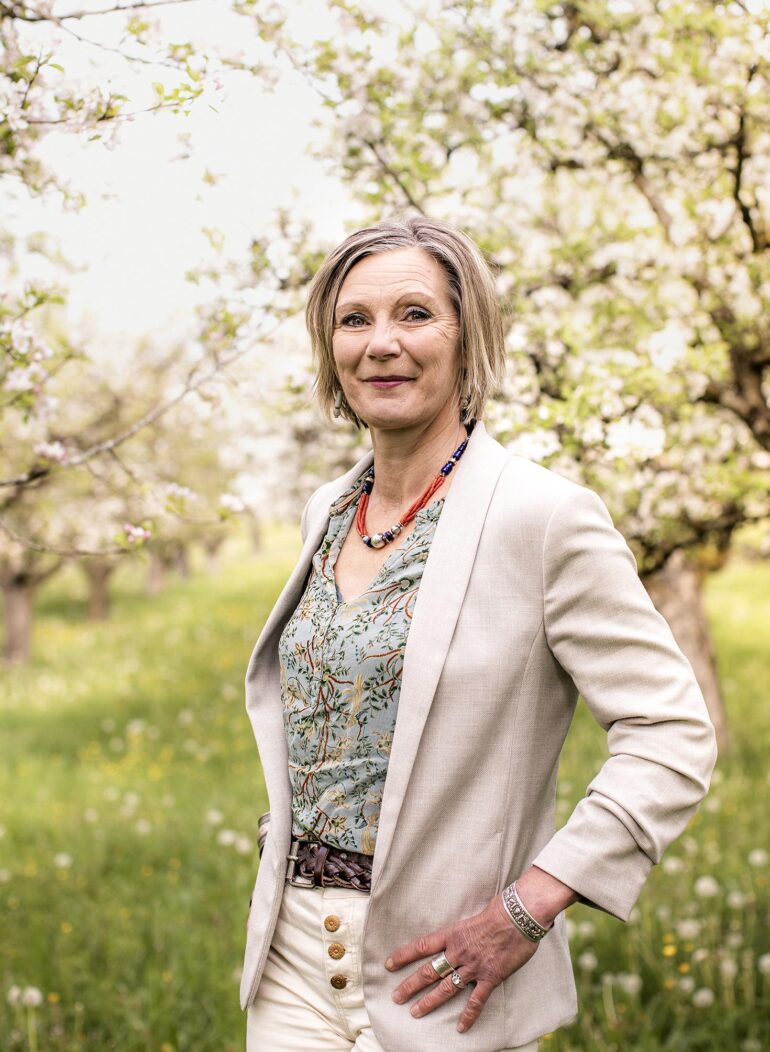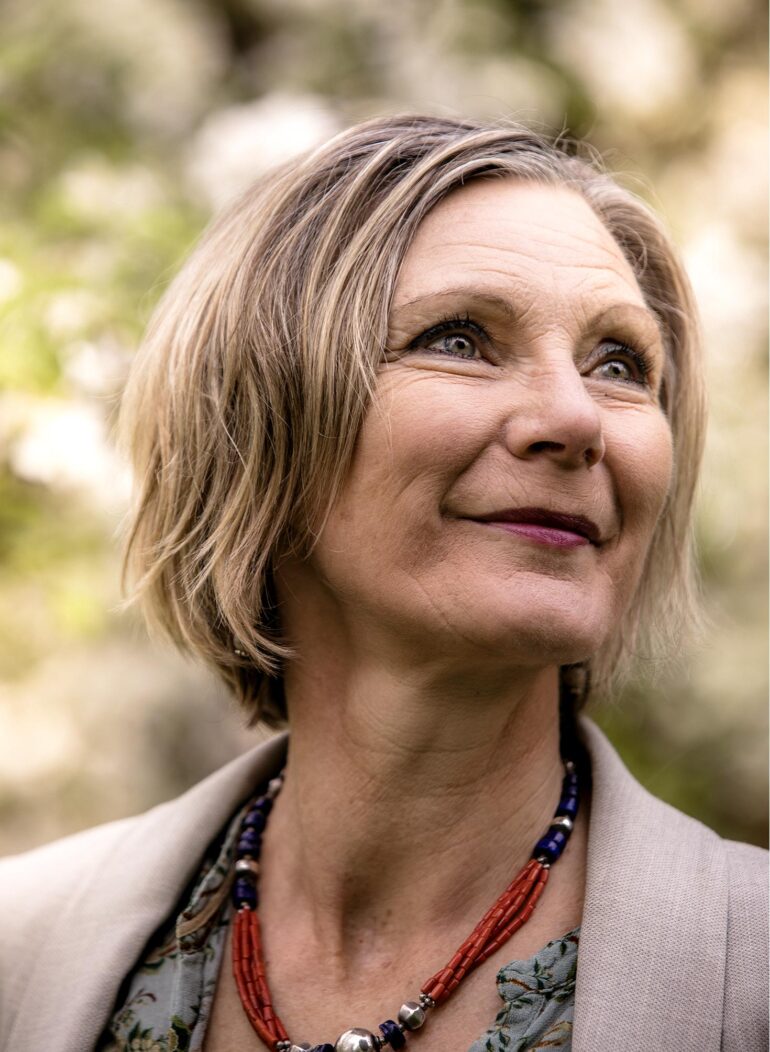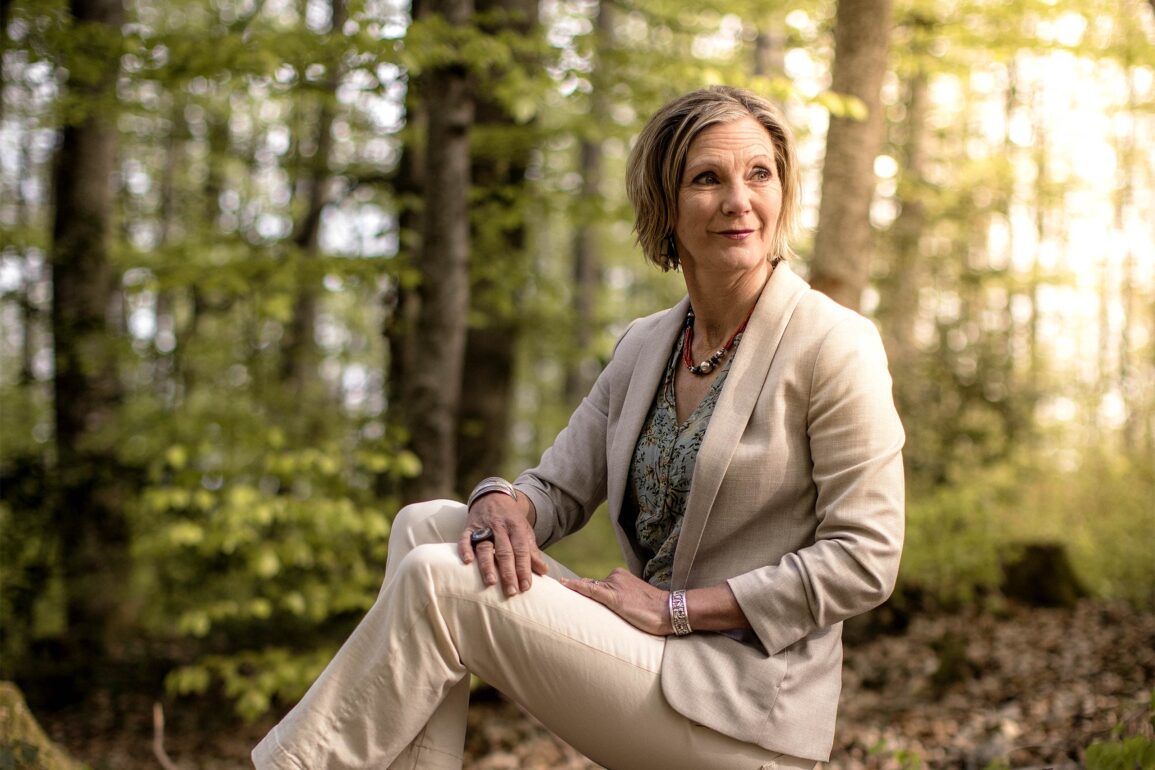Through her involvement with environmental foundations, the Green member of the Council of States from the canton of Basel-Landschaft has an informed view of the latest developments. She is a member of the foundation board of Pro Specie Rara, the Greina Foundation and Biovision.
The Philanthropist: What opportunities are available to foundations and what role do they play in the environmental sector?
Maya Graf: Foundations play a major role in Swiss society. They adopt important issues and support charitable initiatives and projects, particularly in the environmental sector. They are part of Swiss culture and the sheer number of foundations demonstrates how many people are privately involved in supporting their own chosen causes.
Where does that come from?
MG: Firstly, a lot of people in Switzerland have a lot of money and want to put it towards a good cause. Secondly, we have a citizen legislature and strong participation in organised social activities. When you compare our set-up with other countries, it’s quite unique.
And where does politics come into play?
MG: For me, politics is everything that moulds, organises and advances society: it sets the framework for successful coexistence. Today and tomorrow. In a narrower sense, the democratically elected politicians are responsible for rules and the way they are enforced: always on behalf of the population. By extension, foundations share this obligation to society and aim to act in its interests. Foundations and clubs play an important role in Switzerland. I don’t think there’s another country with as many clubs as ours. We acquire our practical, democratic understanding through every club we attend. Every young person learns how to vote and how the democratic process works at the general meeting of their gymnastics club. With foundations, it’s different.
How so?
MG: To a certain degree, they are self-regulating, with some legal regulation through the supervisory authority to ensure they are complying with their stated purpose. The foundation board elects new board members itself. There is no general meeting to propose motions, make nominations or exercise financial control.
You disapprove?
MG: Foundations find themselves in a special position because their only obligation is to their charitable cause. But their remit is also special. Their philanthropic activities are designed to serve the interests of society. But all the decisions are made by one person or one group of people. We have to ask ourselves how we can make foundations a little more democratic. How can they increase transparency? Many of them are not very clear about their portfolio. And they don’t have to publish their annual reports, for example. Questions are going to be asked in future. There’s a lot of money tied up in foundations.
One hundred billion francs and rising.
MG: Exactly. That’s why they play an important role – and always have done. Depending on their mission, they may also support political interests. Or at Pro Specie Rara, for example, we are committed to preserving traditional crops and breeds of farm animals in order to save that genetic and historical diversity for future generations. Our food system needs freely accessible, diverse seed stock. This task is enormously important for our society and for the future. It’s not something we want the state to take charge of.
Council of States member Ruedi Noser’s motion questions the involvement of tax-exempt organisations in politics. Where do you stand on that?
MG: We need to show how important charitable organisations are when it comes to moving Switzerland and its sustainable development forwards. We have a rich and powerful business sector. It can access substantial funds in a referendum campaign. There needs to be a balance. These charitable organisations want to serve the interests of society and its future and are also making money available. Where’s the problem? It’s astonishing and not very democratic to try to prevent this now.
What do you expect to happen?
MG: We mustn’t behave defensively. The population is behind the foundations and organisations. Many people would rather engage with a cause directly through foundations and NGOs than through politics. Operational charities often have sections that are active on the ground even in the most remote Swiss valleys and are able to get people on board. When it came to the Responsible Business Initiative, the regional groups were very active for years and fought to the last. The narrow defeat in that referendum was a bitter blow for all those volunteers on the ground. Nevertheless, it’s good to see that our democracy is alive.
ʽThere needs to be sustainable reinforcement at local level’
Maya Graf, member of the Council of States from the canton of Basel-Landschaft

Now there are referendums coming up on two initiatives demanding that we abandon the use of synthetic pesticides. Biovision has taken a clear stance.
MG: These two initiatives show the general public putting pressure on our politicians to finally do something to tackle the pesticide problem and the impact it is having on humans, animals and the environment. It is equally important for our future, our climate and our natural resources to say yes to the CO2 Act on 13 June 2021. We need to introduce clear measures to implement the Paris Climate Agreement as quickly as possible. The climate crisis won’t wait – it is already here and presenting us, and above all future generations, with huge challenges. Here too, the key is for us to act together at all levels.
How did your involvement with Biovision come about?
MG: Twenty years ago, when I first arrived in parliament, I also became president of the Swiss GMO-Free Alliance (SAG). Back then, the question of how to control genetically modified crops to ensure there were no risks for our agricultural and food sectors was the predominant issue. Gene technology legislation was drafted and we demanded a moratorium on commercial releases. The SAG succeeded in building a successful alliance and obtaining the moratorium on gene technology – in partnership with all of the farmers’, consumers’ and development organisations, environmental associations and the anti-GMO initiative. The moratorium remains in place to this day. At a European GMO-free conference in 2008, I met Hans Rudolf Herren, the well-known entomologist, alternative Nobel Prize winner and founder of Biovision. He explained how he had just co-authored and completed the comprehensive World Agriculture Report (IAASTD) for the UN and the World Bank and was clearly delighted that the first countries had already signed up to the project. Four hundred scientists, primarily from southern-hemisphere countries, undertook a survey of world agriculture and suggested measures for agro-ecological change.
What were the results?
MG: The report came to the conclusion that industrial farming only leads to a dead end. It is anything but fair to the 500 million or more small-scale farmers that exist around the world. Yet they are the ones who are producing 70 percent of all foods. In the north, industrial farming produces surpluses and destroys the land and the environment. The report calls for an ecological development in farming and large-scale local innovation. What is needed is more training, more technology for farming families, empowerment of female farmers, freely available, environmentally compatible seed stocks, mixed cultivation and the integration of traditional knowledge. There needs to be sustainable reinforcement at local level. Through Biovision, which he founded 30 years ago, Hans Rudolf Herren has already successfully adopted this agro-ecological approach. I wanted to introduce exactly the same approach to our own food and agriculture policies here in Switzerland. Through parliamentary proposals, I managed to ensure that Switzerland has incorporated these approaches into its agricultural policies. And now I’m continuing to work on these goals as a board member of Biovision.
How can foundations get involved in politics and society?
MG: The Greina Foundation provides a good example of what a foundation can achieve. It was set up in 1986 and has been very successful politically. It is dedicated to the protection of the Greina high plateau and the conservation of natural landscapes and Alpine rivers. The latter are inextricably linked with energy policy and with the question of how much we want to invest in which renewable energies so as not to harm the environment. For example, it is vital that any expansion of hydroelectric power does not come at the expense of the last remaining natural watercourses or landscapes. We must not destroy these treasures. That’s why we need to highlight alternatives. This is exactly what the Greina Foundation does in promoting solar energy and energy-plus buildings. Its goals have made it an important foundation. It has helped to drive the energy revolution.
How has it managed that?
MG: Above all, through persistent lobbying, grassroots networking and a lot of personal commitment. Its CEO, Gallus Cadonau, has been a well-known figure in the Federal Parliament for many years. I had barely arrived as a new member of the National Council when he asked me to join the foundation board. Gallus Cadonau has incredible expertise in this area and knows all the ins and outs of the complex energy labyrinth. He illustrates what foundations can do to make a credible and sustainable impact on politics.
Are environmental foundations currently in vogue? Are they attracting more donations? After all, the issue of climate change is everywhere.
MG: For Biovision, I can answer that with an unequivocal yes. Hans Rudolf Herren set up Biovision as a charitable organisation. Back then, the focus was on agro-ecological projects in East Africa. The charity became a foundation in 2004. In recent years, the foundation has added another string to its bow by extending its focus to sustainable development in Switzerland. It has taken the lead in the ‘Platform Agenda 2030’, helping to implement the UN’s Sustainable Development Goals (SDG). The foundation also supports a Food Parliament initiated by young people to debate new ideas for sustainable food systems. Biovision has also organised the touring exhibition ‘CLEVER – spielend intelligent einkaufen’, a walk-though exhibition which highlights the consequences of our own consumer behaviour, raising public awareness. The project appealed to young visitors in particular. They are concerned by the increasingly visible consequences of climate change – our production methods and food consumption have a huge impact.
Are the roots of this movement primarily to be found in our cities, along with urban gardening, permaculture or urban villages?
MG: Today’s city includes vast suburban areas. When I think of Pro Specie Rara in particular, their seedlings were snapped up in no time last year – partly, no doubt, because of COVID-19. Seedling and seed markets are experiencing unprecedented uptake. People want to garden and grow their own vegetables, whether in the city or in the countryside. I’ve been particularly pleased to see the growing demand for old native varieties because that will encourage biodiversity. People today are definitely more aware. It’s noticeable that many young people and young families are showing an interest. And the organic movement has grown, too: we’re seeing more and more young farmers with a sustainable, innovative approach. The next generation is ready.



